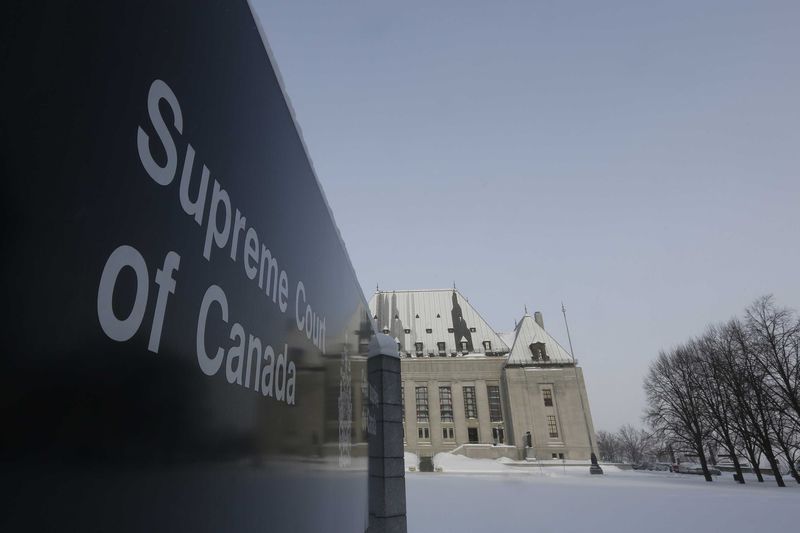By David Ljunggren
OTTAWA, June 30 (Reuters) - Canada's Supreme Court on Friday struck down rules making it easy for generic drug firms to overturn patents granted to pharmaceutical companies, a decision that removes an irritant in the run-up to talks on NAFTA.
The ruling spells an end to the so-called Promise Doctrine. This allowed a patent on a drug to be ruled invalid if a court decided the medication had not lived up to all the promises that a firm had made to be granted the patent in the first place.
U.S. companies, complaining that this meant it was far too easy for them to lose patents on drugs they had spent a fortune on developing, wanted the doctrine to be raised as part of the renegotiation of the North American Free Trade Agreement.
The nine judges on the top court unanimously backed an appeal by AstraZeneca Plc AZN.L against generic drug maker Apotex, which wanted to invalidate a patent on a medication used to tackle excess gastric acid.
The judges said an otherwise useful drug could be deprived of patent protection because not every promised use had been "sufficiently demonstrated or soundly predicted" before it came onto the market.
"Such a consequence is antagonistic to the bargain on which patent law is based wherein we ask inventors to give fulsome disclosure in exchange for a limited monopoly," they wrote.
The doctrine, which came into force in 2005, has already been used to invalidate almost 30 medical patents.
The U.S. Chamber of Commerce welcomed the decision, saying the doctrine had "created harmful instability and uncertainty for medical innovators by making it difficult to obtain or defend a life science patent in Canada".
Talks on NAFTA could start as soon as August. In recent months Canada and the United States have clashed over dairy, lumber and commercial aircraft.
Eli Lilly and Co LLY.N challenged the doctrine at a NAFTA arbitration panel but lost the case earlier this year.
Richard Gold, a law professor at McGill University in Montreal who specializes in intellectual property, said the ruling greatly strengthened the hand of patent holders.
"This takes an irritant off the table, which simplifies NAFTA negotiations," he said in a phone interview, saying the court had weakened Canada's hand at the talks by depriving it of a potential bargaining chip.
Neither AstraZeneca or Apotex were immediately available for comment.
